Western observers are warning of a second Cold War but what’s really going on in the Kremlin – and how much is Vladimir Putin prepared to gamble?
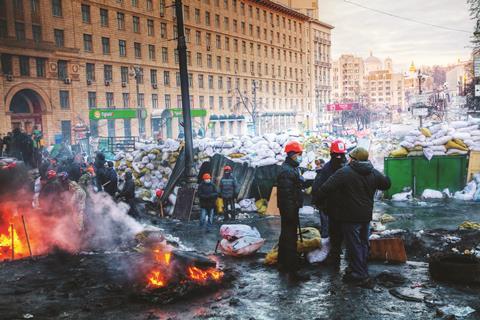
The Bear is back. That is, if it ever went away. In the political cartoons printed in the past few weeks and months, the old foe is there again – big, furry and grim, just as he was throughout the Cold War and even back to the Great Game and the Victorian Age of Empire.
But how realistic is the popular image of a resurgent Beast from the East? Are we witnessing a new age of expansion of Russian interests? What are the lessons for risk managers as they scan the horizon for emergent threats?
“There is a perception that Putin has acted on the spur of the moment, but I think that he has a long-term vision that he implements opportunistically,” says Steven Eke, Russia and Ukraine analyst at Control Risks. “If you look at the rapidity and bloodlessness of the annexation of Crimea, it had clearly been planned long in advance.”
The Russian move has clearly destabilised the wider Ukraine. “We are in danger of crossing a Rubicon beyond which the possibilities for creating a functioning and stable Ukrainian state start to decline rapidly,” says Eke.
“If you stand back and look at Ukraine, it clearly faces multiple crises: an economic and financial crisis; a strategic crisis in terms of the push-pull between the EU and Russia; a security crisis in terms of the destabilisation of the eastern provinces, all coupled with the much longer-term, 20-year problem of not having created an open, viable and functioning apparatus of state.
“Ukraine is already ticking some of the boxes of a failed state, and that prospect is in no one’s best interests. The EU and Russia are going to have to find a way of working together.”
But although that consensus might exist in theory, the fact is that Russia and the West are moving further apart – as are EU member states – and Russian action in Crimea has exposed sharp divisions on how the West should act.
“In the West we are seeing crisis management,” says Dr Daragh McDowell, senior Russia analyst at Maplecroft. “Crises were seeable but weren’t actively foreseen and prepared for. They weren’t ready for a big Russian response; they didn’t know how to act.”
Red line
The EU’s struggle to agree an appropriate response is making it hard for risk managers to determine the line of travel. “The Baltic states want to take a much harder line, including using NATO resources, while in Germany there is much more resistance to this, including even imposing further sanctions,” says Eke. “NATO will clearly not fight over Ukraine, but the Baltic states would represent a red line and I think Putin knows this.”
But while open war is thankfully unlikely, the threat of economic conflict is still a reality – and energy supplies are widely seen as Putin’s trump card.
“The use of energy as a tool of foreign policy is enshrined in Russia’s foreign policy doctrine,” says Eke. “We often overlook this and think Gazprom is acting alone. It’s not. Its behaviour is there in black and white and has been for some time.
“What is new is the spin Putin is giving his actions since he returned to power in 2012. He has moved away from the idea of a multi-polar world in which Russia is a key power balancing out the US, and moved towards the idea of Russia asserting itself on its own terms and presenting itself as the global face of religious conservatism.”
Global shocks
But despite the rhetoric, many analysts remain cautiously optimistic about the extent to which Russia will – or can – wield the oil and gas sector as a weapon.
“The Russian economy has some long-term structural vulnerabilities and some chronic underlying problems that mean that it consistently underperforms – and one of these is capital flight, which has increased dramatically since the Ukraine crisis,” says Eke. “Russia is vulnerable to global shocks in external markets and is keen not to undermine business and commercial links.”
As McDowell notes: “One key issue for Russia is that most Russian gas is actually consumed domestically – the gas that it exports to Europe is actually Central Asian gas, which it benefits from simply because it sits on Soviet-era pipelines and Russia is a monopoly purchaser.
“But this is a strategy with a limited runway; Russia needs to modernise its own supply and to do that, it needs Western investment and technology. The fallout from Crimea has meant this has been set back, which is not in Russia’s long-term interests.
“In addition, what has happened in Ukraine has worried former Soviet gas suppliers such as Kazakhstan and, if anything, pushed them closer to China. Russia could find itself in a position where a major supplier is bought out from under it.”
Such a move would be a disaster for Russian strategy, which depends on a long-term shift of export market focus towards the East. “We are expecting a big deal to be signed with China sometime soon,” says Eke, “and there is clearly an expectation that demand in Europe will decrease as shale deposits are exploited and the US exports more.”
Toxic climate
But while the growling Bear may be tamed by a need to take a pragmatic long-term view – especially as the Russian economy enters recession – there are still enough uncertainties to give risk managers cause for concern.
In particular, the domestic political climate in Russia is growing increasingly toxic.
“We are seeing the development of a more nationalist – imperialist, even – clique around president Putin,” says McDowell. “There are people in government saying, ‘We should take more – the door’s open in Ukraine.’
“The big risk is that no one is really in charge in eastern Ukraine. The people running the little fiefdoms and provinces are basically organised criminals. It’s incipient warlordism. Lots of different things could happen that could kick off more violence. If this happens, the pressure would be on Putin to insert more troops.
“I don’t think he would want to, but the political pressure might become too much, as the propaganda in Russia has been whipped up to such an extent he cannot back down.
“If he did that, you could see much more serious EU sanctions.”
Authoritarian
For risk managers, the situation on the ground is complex and becoming ever more so. “Risks are going to be increasing along a long spectrum in Eastern Europe,” says McDowell. “Russia is going into recession and becoming more authoritarian, which is affecting business there; Ukraine’s economy is on the verge of collapse. There are supply chain issues for firms transiting out of former Soviet republics.”
In addition, over the long term, concerns arise in respect of the EU’s ability to project a deterrent and call Russia to account. As a result, the Kremlin could – perhaps – feel freer to act aggressively.
“There are greater divisions within Europe over this and other issues, so what happens to the EU when another round of the euro crisis takes place?” says McDowell. “What happens as Eurosceptic voices become louder? What impact will this have on the EU’s ability to take external action?”
“Destabilisation in Ukraine is serious,” says Eke. “In some respects, there is an existential challenge to the state, and its viability as an independent European state. This could have serious ramifications.
“Risk mangers need to take a long-term perspective and follow the longer-term trends of those competing interests that clash in Eastern Europe.” SR
US sanctions on Russia backfire
Russia’s 11th-hour signing of a $400bn (€294bn) gas deal with China is further evidence of the way in which US trade sanctions have so far backfired on president Barack Obama.
“The US government has seriously underestimated Vladimir Putin,” says Stuart Poole-Robb, the chief executive and founder of KCS Group, an international strategic intelligence, risk and security management company.
US sanctions have so far had little or no effect on events unfolding in Ukraine and Crimea.
All that has been achieved is to bring the US’s old Cold War enemies Russia and China closer together. The new gas deal spans the next three decades and further cements relationships between China and Russia.
The deal to pipe Siberian gas to China’s north-east also gives Putin an opportunity to diversify Russia’s export routes away from Europe, while helping to ease China’s gas shortages.
According to China’s official Xinhua News Agency, Putin said: “China is our reliable friend. To expand co-operation with China is undoubtedly Russia’s diplomatic priority.”
The US and the EU have been imposing targeted sanctions against Russia’s top officials, freezing their assets in addition to preventing them from obtaining visas. EU sanctions also now target 61 people, including high-ranking Russian officials.
The third stage of US and EU sanctions would impose broad economic sanctions on entire sections of the Russian economy.
Russia, however, has called the sanctions “inappropriate and counterproductive”, warning Western powers about the “boomerang effect” that sanctions would have on them.
“If the US goes ahead with the sanctions in a fit of pique, it is more likely to damage European trade relations with Russia. This is particularly true of Germany, which has become increasingly reliant on Russian energy supplies,” says Poole-Robb.
According to KCS, one area in which the US has seriously underestimated Russia is in believing its own propaganda about Vladimir Putin.
Portraying Putin as a demagogue fails to take account of the ways in which the Russian leader consistently lobbies Russia’s ruling elite to ensure high-level support for his foreign policy.
“Recent attempts to discredit Putin have seriously backfired on the US and fail to take account of his consensus approach to decision making,” says Poole-Robb.
Allegations by US prosecutors in May 2014 that five Chinese army officers allegedly engaged in economic cyber espionage have also backfired on president Obama.
It is unlikely that China will even consider handing over the named officers and the new superpower has responded with counter allegations that the US routinely spies on other countries, accusing the US of hypocrisy and double standards.
All that the US’s cyber espionage allegations achieved is to have brought China and Russia closer together in the days leading up to the signing of the 30-year $400bn energy deal between the two countries.
US attempts to discredit Putin have therefore had little effect on Russia’s risk profile as far as companies doing business in Russia are concerned, although KCS recommends that an additional emphasis on due diligence should be adopted in the current climate.





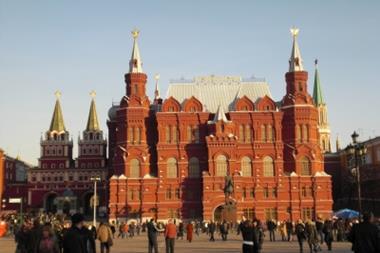
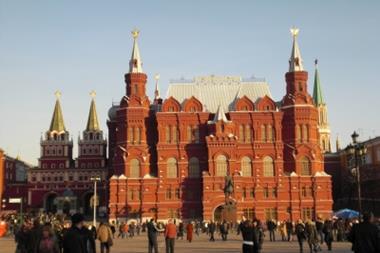
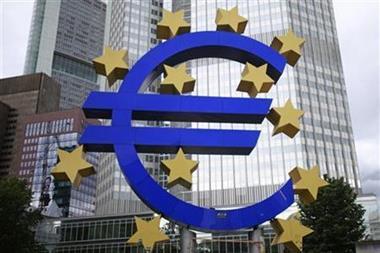
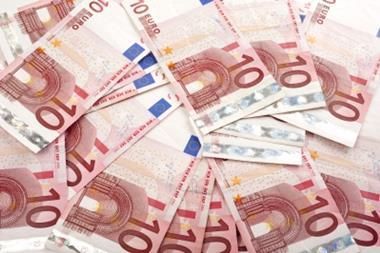











No comments yet